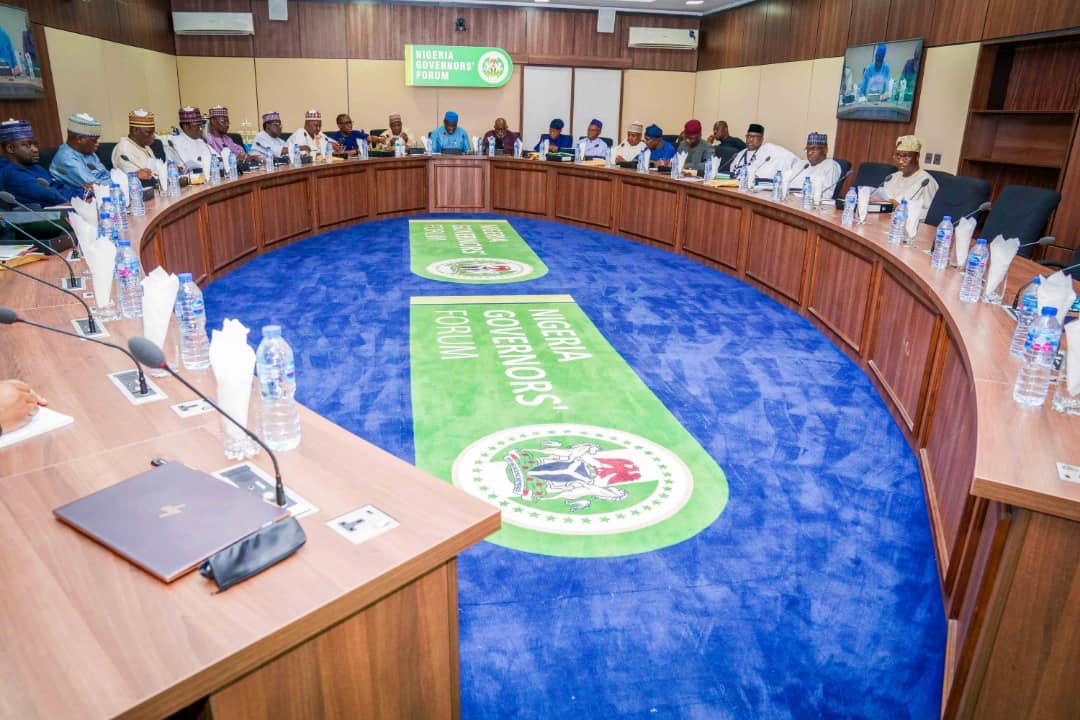Govs slammed for wasting N160bn on unviable airports
Six state governments including Ekiti, Ebonyi, Jigawa, Yobe, Nasarawa, and Bayelsa have spent about N160bn on airport projects that opposition politicians and aviation professionals classified as unviable.
Stakeholders say the huge public funds expended on the facilities have amounted to waste. They condemned the state governors and asked Nigerians to hold them responsible for the waste.
However, some industry players advised that the facilities be converted into skill acquisition centres for the benefit of the citizens.
Some called on relevant authorities to probe the money spent on the unviable projects
Checks by the PUNCH showed that the six states spent over N160bn on their various airport projects, but the facilities have not attracted a considerable number of aircraft for charter or commercial purposes.
Apart from the Murtala Muhammed Airport, Lagos; Nnamdi Azikiwe International Airport, Abuja, and Port Harcourt International Airport, Port Harcourt, Rivers State, that generate about 80 per cent of revenues for the Federal Airports Authority of Nigeria, other airports constitute a financial burden to FAAN.
But, despite the challenges facing most of the aerodromes in the country, more state governments have continued to pump scarce resources into the construction of more airports with most designating them as “cargo airports.”
In the last decade, no fewer than 10 state governments have mooted or commenced such projects.
Some of the states include Osun, Ebonyi, Ogun, Benue, Zamfara, Nasarawa, Abia, Ekiti, and Bayelsa. Sadly, most of these projects were never completed, while others were abandoned by their successors in office.
They include Asaba Airport, Ebonyi Airport, Bayelsa Airport, Ogun Cargo Airport, MKO Abiola International Airport, Osun, which is uncompleted, Ekiti Cargo Airport, Anambra Cargo Airport, Abia Airport, Wachakal Airport in Damaturu, and Dutse International Airport in Jigawa.
Others are Lafia Airport in Nasarawa which is uncompleted, Kebbi Airport, Auchi Airport in Edo which is uncompleted, Zamfara Airport, and Gombe Airport.
In 2017, Governor Willie Obiano of Anambra State commenced his move to build an airport in the state. Six years later, the governor renewed his zeal for the project, A cargo airport in Umueri, in the Anambra East Local Government Area.
Anambra State is surrounded by airports in Delta, Imo, and Enugu states but the governor embarked on the project.
Though many believed the project was new in the plans of the government and needless, the governor in April 2017 flagged off the airport project.
At the flagging-off ceremony in April 2017, Obiano said that the government wanted to create an airport city in the state with a model that would accommodate two runways, an aviation fuel dump, an airport hotel, an industrial business park, an international convention centre, as well as a facility for aircraft maintenance.
He had initially boasted that the airport with a cost implication of $2b as at when it was conceived would join some of the most advanced airports in the world with a capacity to land any of the most sophisticated vessels known to man.
In 2021, the state government said N6b was spent and not $2b as alleged in some quarters.
Also, the immediate past aviation minister, Hadi Sirika, conveyed the approval for the construction of the Ebonyi airport through correspondence to then Governor David Umahi, now Minister of Works. The letter was signed by the Director of Safety and Technical Policy, Capt Talba Alkali, on behalf of the ministry in 2019.
At the commissioning of the airport, Umahi revealed that he spent over N36bn to build the airport, located in Onueke, Ezza South Local Government Area. But as at the time of filing this report, the airport situation is best described as comatose.
The immediate past Ekiti State Governor, Kayode Fayemi, expended N16bn public funds on the Akure airport, but the airport has also refused to attract aircraft over its non-viability.
When the governor conceived the idea, it was greeted by criticisms from stakeholders both in the state and beyond but the governor vetoed the cargo airport which is currently not in use.
As of January 2023, the Special Adviser to Governor Biodun Oyebanji on Budget, Economic Planning, and Performance Management, Niyi Adebayo, revealed that N16.6bn had been spent on the yet-to-be-completed facility in Ekiti State.
He explained that the fund was used for perimeter fencing, completion of the runway and taxiway, terminal building, and payment of compensation for the farmers whose farmlands were acquired for the project.
In Jigawa State, ex-governor Sule Lamido, also pumped N4bn to build an airport for the state, one that was commissioned in 2014 by former President Goodluck Jonathan.
The airport facility is located less than 100km from Aminu Kano International Airport, making experts describe it as wasteful spending.
Also, in Bayelsa, former Governor Seriake Dickson spent N70bn on the construction of an airport which began in 2012 and was completed in February 2019.
The amount spent on the airport by the governor has been disputed by some stakeholders, among which was the former National Chairman of the All Progressives Congress, Adams Oshiomole.
Oshiomhole had stated that the project gulped over N100bn but Dickson insisted that it was done at the rate of N70bn.
Same for Yobe State where the transport commissioner, Abdullahi Kukuwa, had recently told newsmen that the state spent more than N18bn on the unused airport project initiated in 2017.
Like its counterpart, the Nasarawa cargo airport project was initiated in December 2015 during the second tenure of a former Governor Umaru Al-Makura, who said he had the vision to open the state for investment opportunities.
The project was estimated at N10bn and was to ease cargo traffic at the Nnamdi Azikiwe International Airport in the Federal Capital Territory, Abuja, because Nasarawa is the closest state bordering the FCT.

 Business5 months ago
Business5 months ago
 Politics7 months ago
Politics7 months ago
 Politics6 months ago
Politics6 months ago
 celebrity radar - gossips6 months ago
celebrity radar - gossips6 months ago





